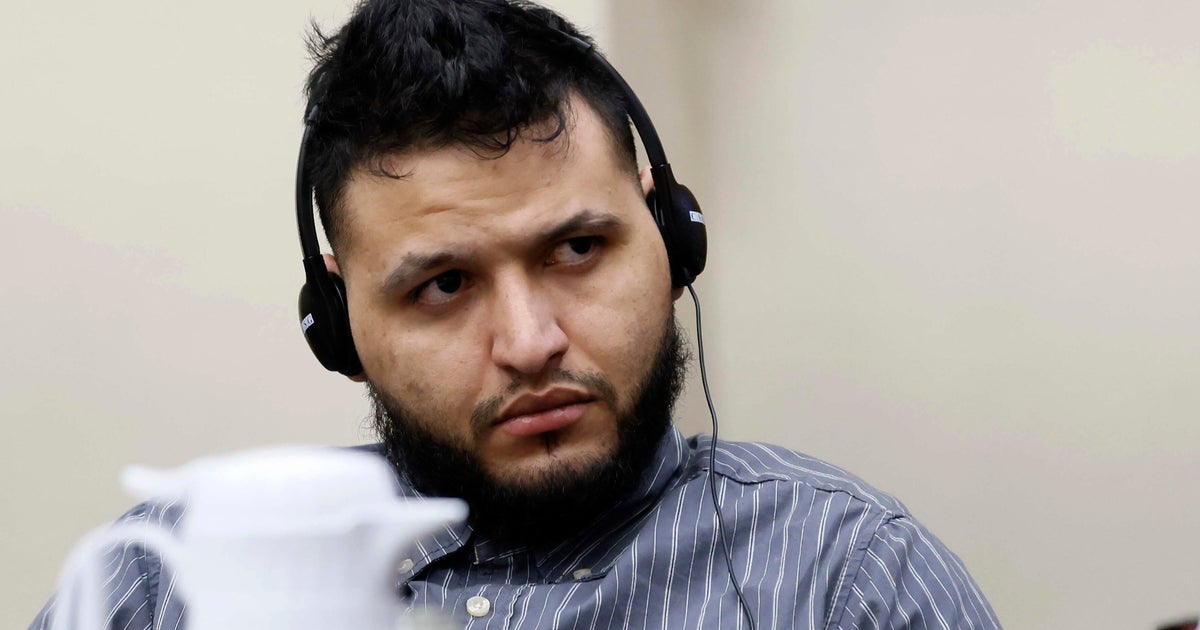Gunman in Florida high school massacre pleads guilty to murder
A 23-year-old man pleaded guilty to 17 counts of first-degree murder Wednesday for the 2018 shooting massacre at a Florida high school as his attorneys turn their focus to saving him from a death sentence. A jury will later decide whether to sentence the gunman to death or life in prison.
Nikolas Cruz appeared before Circuit Judge Elizabeth Scherer, who asked him a lengthy list of questions to gauge his mental competency. The defendant said he was feeling anxious.
Scherer then asked him one by one how he pleaded to each killing at Marjory Stoneman Douglas High School. Cruz said "guilty" each time.
The defendant's attorneys announced his intention to plead guilty during a hearing last week when he pleaded guilty to assaulting a jail guard.
Ahead of Wednesday's hearing, Fred Guttenberg, whose 14-year-old daughter Jaime was killed in the shooting, told CBS News correspondent Mireya Villarreal the past three years have been "torture."
"I dreamt every day of walking my daughter down the aisle, and because of what this murderer did I now live every day knowing I won't get to do that," Guttenberg said. He wants the defendant sentenced to death.
During the hearing, as several parents shook their heads, the defendant apologized, saying, "I'm very sorry for what I did. ... I can't live with myself sometimes." He also added that he wished it was up to the survivors to determine whether he lived or died.
The defendant also pleaded guilty to 17 counts of attempted first-degree murder for those wounded in the February 14, 2018, attack.
The guilty pleas will set the stage for a penalty trial in which 12 jurors will determine whether the defendant should be sentenced to death or life in prison without parole. Given the case's notoriety, Scherer plans to screen thousands of prospective jurors. Hearings are scheduled throughout November and December with a goal to start testimony in January.
Following the pleas, Broward State Attorney Mike Satz recounted the details of the murders. The defendant killed the 14 students and three staff members during a seven-minute rampage through a three-story building at Stoneman Douglas, investigators said. They said he shot victims in the hallways and in classrooms with an AR-15 semiautomatic rifle. The defendant had been expelled from Stoneman Douglas a year earlier after a history of threatening, frightening, unusual and sometimes violent behavior that dated back to preschool.
The shootings caused some Stoneman Douglas students to launch the March for Our Lives movement, which pushes for stronger gun restrictions nationally.
Since the days following the shooting, the defendant's attorneys had offered to have him plead guilty in exchange for a life sentence, saying that would spare the community the emotional turmoil of reliving the attack at trial. But Satz rejected the offer, saying the defendant deserved a death sentence, and appointed himself lead prosecutor. Satz, 79, stepped down as state attorney in January after 44 years, but remains the defendant's chief prosecutor.
His successor, Harold Pryor, is opposed to the death penalty but has said he will follow the law. Like Satz, he never accepted the defense offer — as an elected official, that would have been difficult, even in liberal Broward County, where Democrats outnumber Republicans by more than 2 to 1.
By having the defendant plead guilty, his attorneys will be able to argue during the penalty hearing that he took responsibility for his actions.



